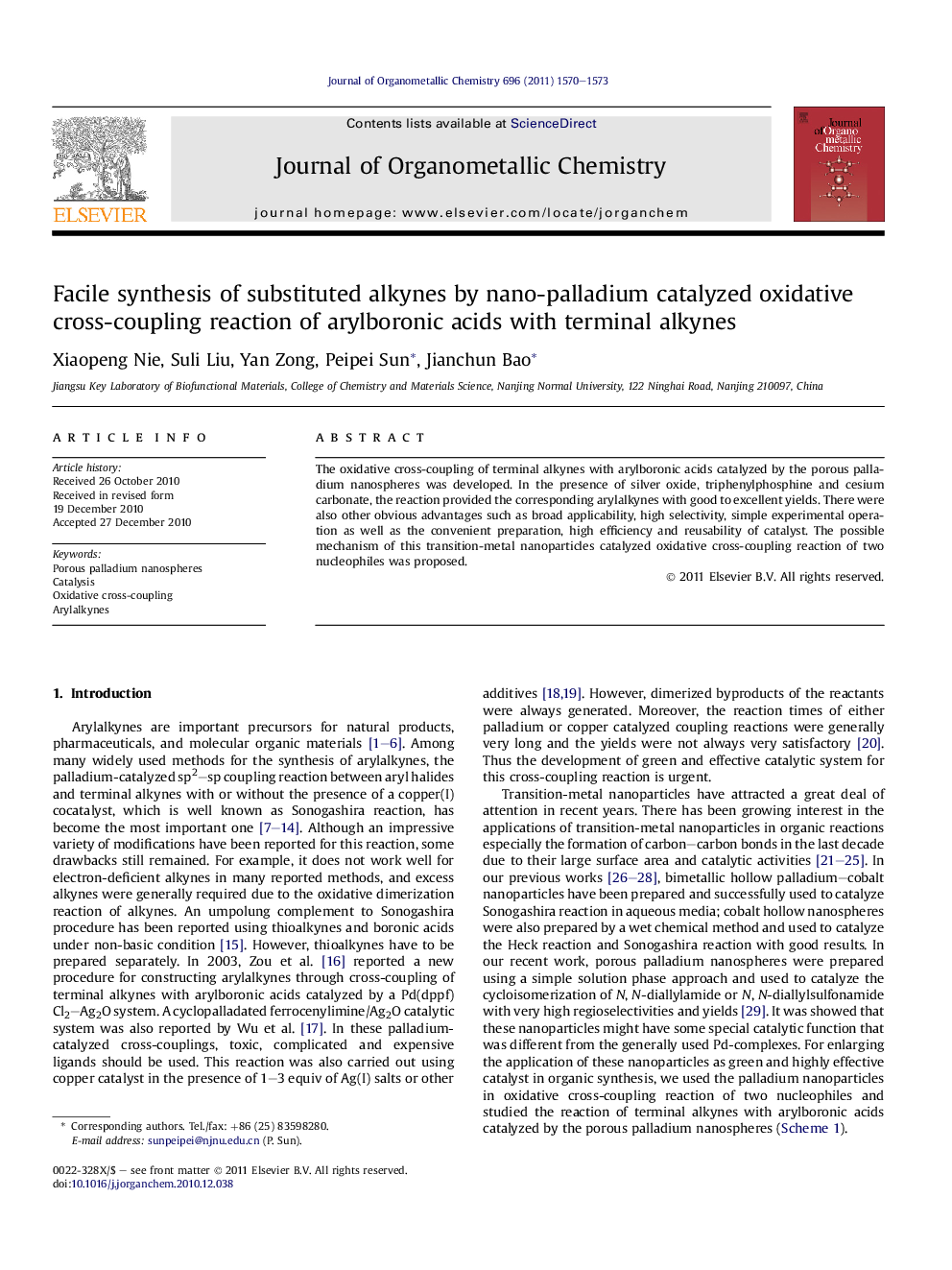| Article ID | Journal | Published Year | Pages | File Type |
|---|---|---|---|---|
| 1322342 | Journal of Organometallic Chemistry | 2011 | 4 Pages |
The oxidative cross-coupling of terminal alkynes with arylboronic acids catalyzed by the porous palladium nanospheres was developed. In the presence of silver oxide, triphenylphosphine and cesium carbonate, the reaction provided the corresponding arylalkynes with good to excellent yields. There were also other obvious advantages such as broad applicability, high selectivity, simple experimental operation as well as the convenient preparation, high efficiency and reusability of catalyst. The possible mechanism of this transition-metal nanoparticles catalyzed oxidative cross-coupling reaction of two nucleophiles was proposed.
Graphical abstractThe oxidative cross-coupling of terminal alkynes with arylboronic acids catalyzed by the porous palladium nanospheres was developed. In the presence of silver oxide, triphenylphosphine and cesium carbonate, the reaction provided the corresponding arylalkynes with good to excellent yields. There were also other obvious advantages such as broad applicability, high selectivity and reusability of catalyst.Figure optionsDownload full-size imageDownload as PowerPoint slideHighlights► The first example of transition-metal nanoparticles used in oxidative cross-coupling reaction of two nucleophiles. ► Good to excellent yields. ► Broad applicability, high selectivity, simple experimental operation as well as the convenient preparation, high efficiency and reusability of catalyst. ► The reaction was effective to both electron-rich and electron-deficient alkynes.
